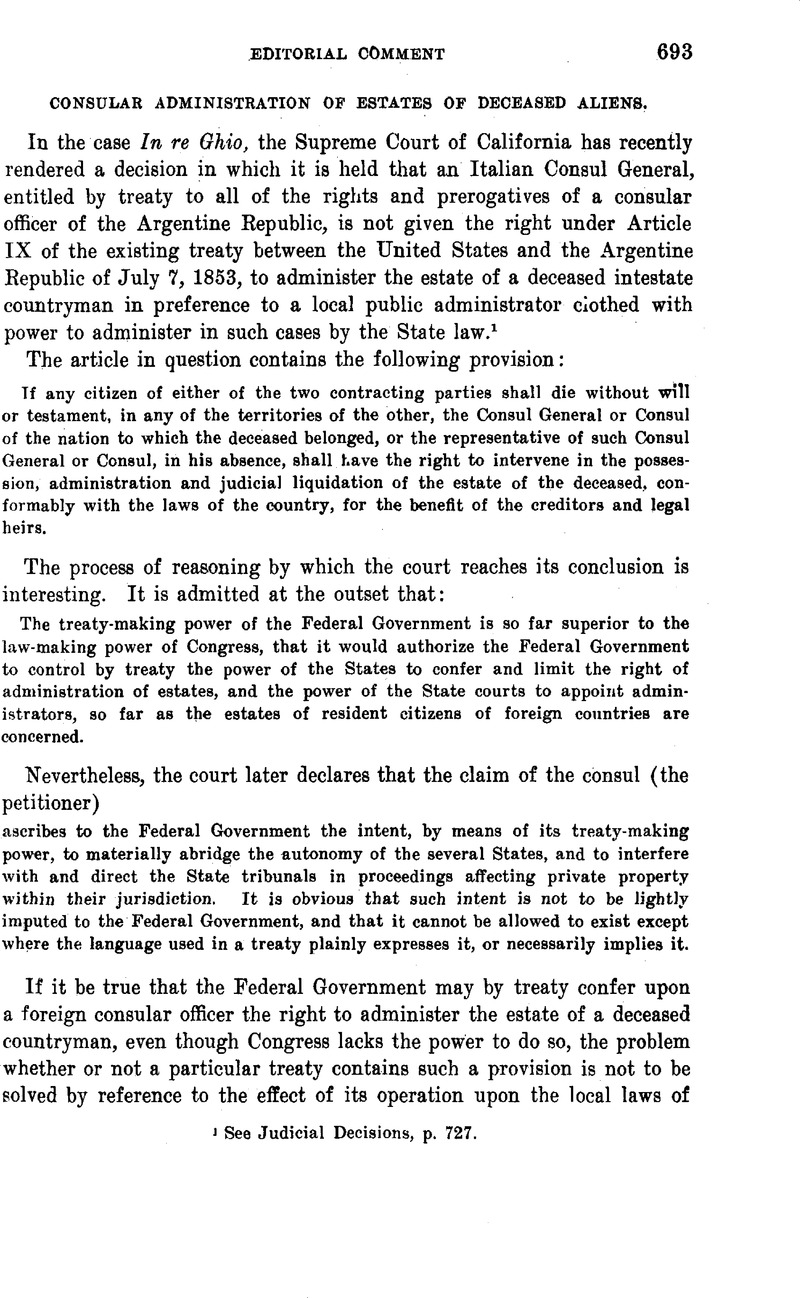No CrossRef data available.
Article contents
Consular Administration of Estates of Deceased Aliens
Published online by Cambridge University Press: 04 May 2017
Abstract

- Type
- Editorial Comment
- Information
- Copyright
- Copyright © American Society of International Law 1910
References
1 See Judicial Decisions, p. 727.
2 See in Re Lobrasciano’s Estate, 77 N. Y. Supp. 1040, 1044.
3 U. S. Constitution, art. VI, sec. 2.
4 See In re Wyman, 191 Mass. 276; In re Fattosini, 67 N. Y. Supp. 1119; In re Lobrasciano, 77 N. Y. Supp. 1040; In re Silvetti, 122 N. Y. Supp. 400; In re Arduino’s Estate, 7 Ohio Law Rep., No. 51, p. 369.
5 77 N. Y. Supp. 1040, 1047.
6 See, for example, communication of Mr. Marcy, Secretary of State, August 21, 1855, to the American Consul General at London; Moore International Law Digest, V, 118.
7 Thus we find, for example, that the Federal Government in the treaty with France of February 23, 1853, was reluctant to agree to permit Frenchmen to acquire and hold real property in the several States of the United States without the consent of such States. Thus the treaty made specific provision in Article VII, that “a s to the States of the Union by whose existing laws aliens are not permitted to hold real estate, the President engages to recommend to them the passage of such laws as may be necessary for the purpose of conferring this right.” (See U. S. Treaties in Force, 270.)
8 The Case of Lanfear v. Ritchie, 9 La. Annual, 96, cannot be regarded as in point because it did not involve the right of a consular officer to administer under the Argentine treaty. In the ease of Re Logoriato’s Estate, 69 N. Y. Supp. 507, the adverse comments of the court on the consular right under the Argentine treaty were dicta. The consul was even in that case granted letters of administration by default of a competent person to oppose him.


